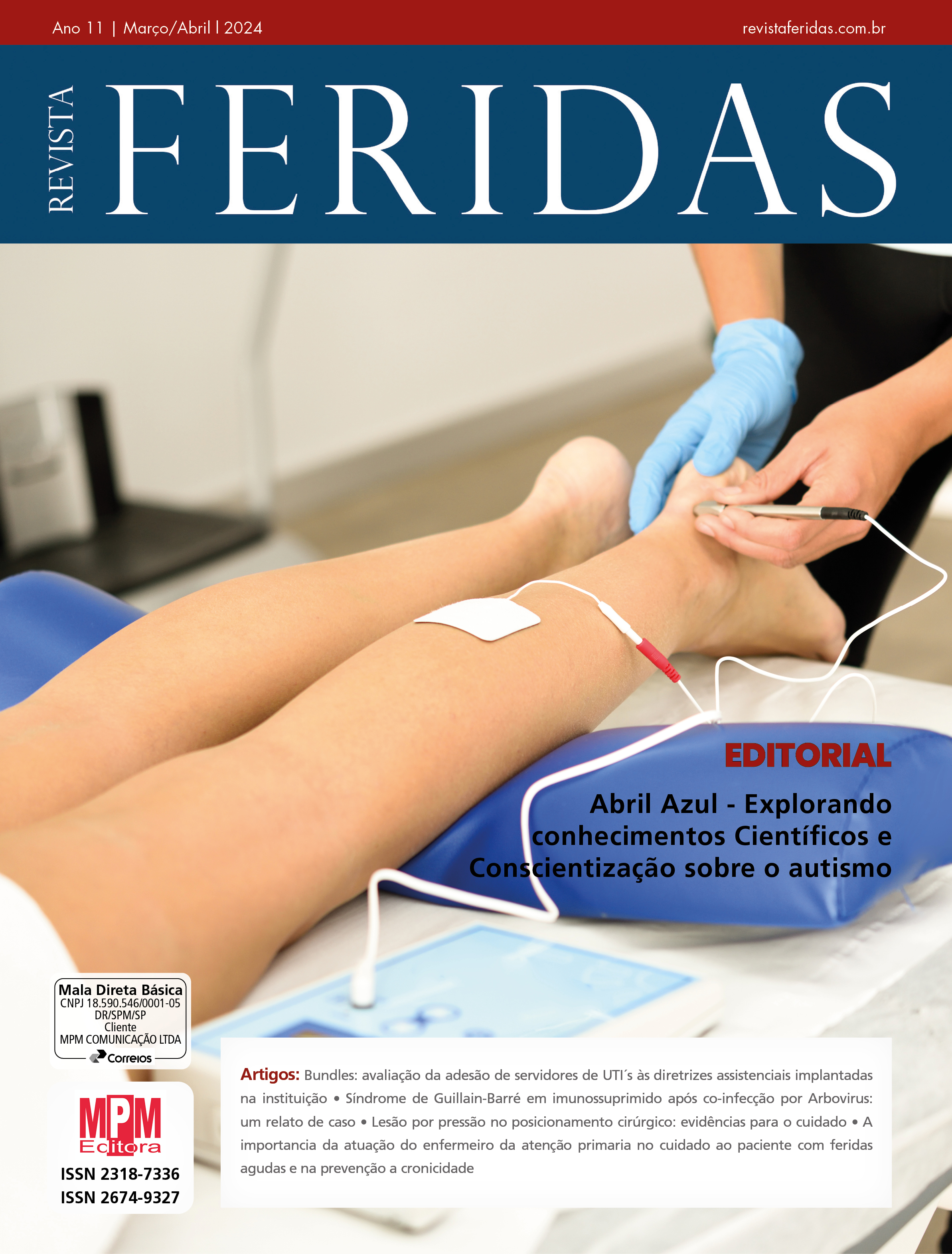GUILLAIN-BARRÉ SYNDROME IN IMUNOSSUPRIMIDO APÓS CO-INFECÇÃO BY ARBOVIRUS: A CASE REPORT
DOI:
https://doi.org/10.36489/feridas.2024v12i62p2276-2282Keywords:
Infectology, Immunosuppression, Guillain-Barré syndrome, Acute Autoimmune Neuropathy.Abstract
Introduction: Guillain-Barré syndrome (GBS) is autoimmune and is caused by an inadequate response of the body to an infectious process, such as viruses, bacteria or fungi. Objective: To report a case of a patient immunosuppressed by HIV who developed Guillain-Barré syndrome after infection by arbovirose. Methodology: This is a retrospective, descriptive study with a quantitative approach. Case study: Patient, male, 30 years old, carrier of the HIV virus, with severe fever, headache and decreased strength in the lower limbs ascending in a podo-cranial manner, currently with loss of strength (grade 3), present paresis ate the subcostal level above the umbilical line (at the level of T8), and patellar hyperflexia and swallowing deficit. He also carried out a serological test for dengue with a positive IgG result. After receiving the results of the liquid test, it is known that it is Guillain-Barré Syndrome caused by arbovirus infection. Days later, a cytomegalovirus-CMV test was performed, which was positive. Open investigation to find out the neurological attack. Patient had a tonic-clonic seizure and was transferred to ICU due to imminent respiratory compromise. After a long period in the ICU, he was referred to the infirmary for continuity of assistance and care. Because he was a long-term patient in a hospital environment, he acquired repeated nosocomial infections due to Staphylococcus epidermidis, Klebisiella pneumoniae, Pseudomonas aeruginosa and others. These aggravating factors, together with the clinical picture caused by arbovirus infection and Guillain-Barré Syndrome and Cytomegalovirose from its onset to a picture of tachycardia, hypotension, desaturation evolving with volume-refractory hypotension and cardiorespiratory arrests - CRP not reversed. Conclusion: Immunosuppressed patients, with long stay in a hospital environment, generally evolve for the appearance of infections related to health care and this may be a predisposing factor that does not increase two cases of deaths.



